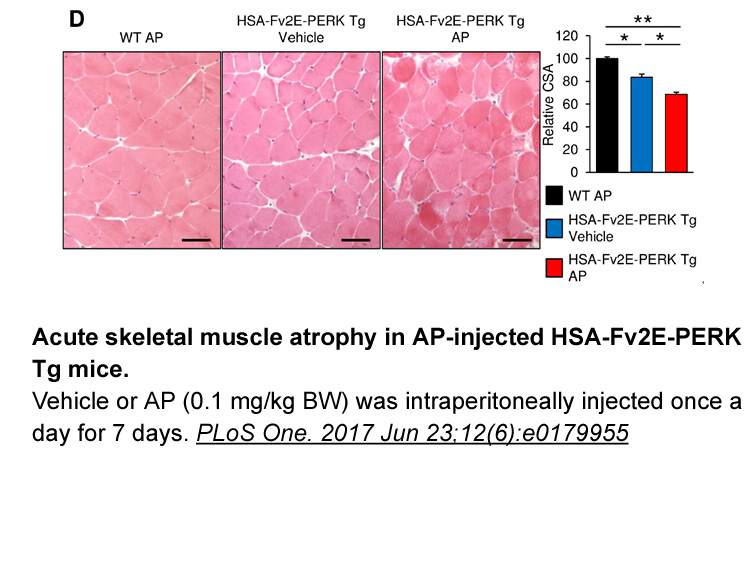Archives
As patients with type diabetes are known to
As patients with type 2 diabetes are known to be hyperinsulinemic per se, this relationship between insulin/IGF1 receptor and AR may point towards a causal role of insulin in AR upregulation. Indeed, this is supported by several previous observations. Beyond the already mentioned AR activation by insulin or IGF-1, liganded AR itself may up-regulate IGF1R expression in prostate cancer cells, possibly involving the Src-ERK1/2 pathway, pointing to a vicious PA-824 receptor once it is activated [16,24,25]. In this regard, insulin and IGF-1 may not only activate AR through Foxo1 inactivation, they might also elevate androgen levels (Figure 5). As it was previously shown, insulin is capable of upregulating expression of enzymes necessary for steroidogenesis both at the mRNA and protein levels and, moreover, to directly increase intracellular steroids in prostate cancer cells, which are well-known ligands for the AR, e.g. testosterone [14] (Figure 5). In line with this, in the same work, insulin treatment led to elevated PSA expression and secretion, finally demonstrating a sufficient activation of the AR by insulin. In accordance with these observations, our results point towards a causal role for insulin in AR upregulation especially when type 2 diabetes is present. Of notice, a number of therapeutic strategies in the treatment of diabetes further elevate circulating insulin levels, including all insulin-based therapies and sulfonylureas. Our data might prompt speculation that insulin-independent glucose lowering treatments might be a better option for patients with prostate cancer. One important drug is metformin, which is not only reported to enhance insulin sensitivity and lower circulating insulin levels but also may act on insulin-independent pathways improving cancer-related outcome in prostate cancer [26,27].
Major activators of the AR are testosterone and dihydrotestosterone (DHT). An important degradation product of DHT is 3β-Adiol. Of notice, 3β-Adiol antagonizes androgen signaling by activating estrogen receptors [18]. In the current work, we investigated the major degrading enzyme of the protective 3β-Adiol, i.e. Cyp7B1. Interestingly, this enzyme also degrades another important selective estrogen receptor modulator (SERM) 27HC [28]. This SERM is synthesized from cholesterol by Cyp27A1. Thus, downregulation of the synthesizing enzyme or overexpression of the degrading enzyme can lead to a decrease in these protective steroids and to a shift from estrogen towards androgen signaling [29]. Besides activation of the estrogen receptor, 27HC is known to contribute to other protective pathways [17,20]. Interestingly, there are differences in patients with or without diabetes in these metabolic pathways. While the synthesizing enzyme is downregulated in tumor in all patients, the degrading enzyme is upregulated in tumor in patients with diabetes only, while downregulated in patients without diabetes. Even though, the downregulation of the synthesizing enzyme is associated with enhanced tumor cell proliferation only in patients with diabetes. Altogether, these data indicate decreased levels of these important protective estrogen receptor ligands and thus enhanced androgen signaling in tumors of patients with diabetes.
Our results indicate that at least two distinct mechanisms may contribute to the poor prognosis of prostate cancer in men with diabetes: i) upregulation of the androgen receptor, presumably via alteration in the insulin/IGF-1 signaling cascade and ii) disinhibition of androgen signali ng due to decreased levels of protective estrogen receptor ligands. Further studies are needed to verify our results on the protein level as most of the proteins addressed were only analyzed on the mRNA level and protein data from TCGA [22] was available only for AR. Further studies are also needed to extend our findings to patients with end-stage disease.
ng due to decreased levels of protective estrogen receptor ligands. Further studies are needed to verify our results on the protein level as most of the proteins addressed were only analyzed on the mRNA level and protein data from TCGA [22] was available only for AR. Further studies are also needed to extend our findings to patients with end-stage disease.
Funding
The study was supported in part by a grant from the German Federal Ministry of Education and Research (BMBF) to the German Center for Diabetes Research (DZD e.V.).